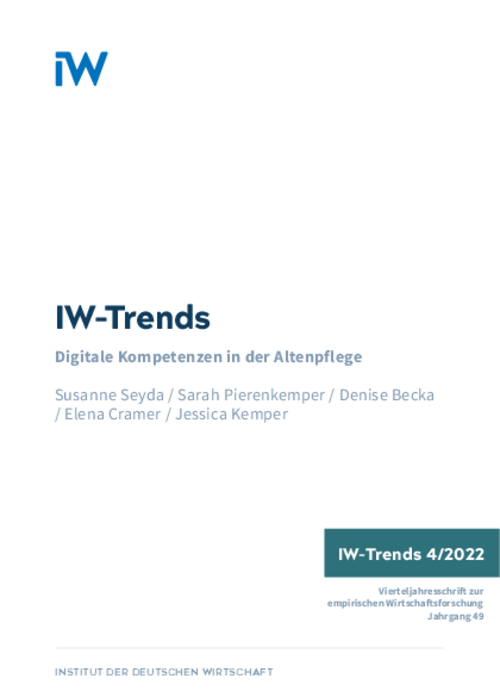Digital skills already feature significantly in geriatric nursing. Of particular importance are operator competencies, for example familiarity with specialised software, and skills in data protection and digitally supported learning.

Digital Competencies in Elderly Care

Digital skills already feature significantly in geriatric nursing. Of particular importance are operator competencies, for example familiarity with specialised software, and skills in data protection and digitally supported learning.
However, further digitalisation in elderly care cannot be taken for granted. Progress is evident primarily in the fields of administration and documentation, and much less so in practical nursing, where many carers are unsure how digitisation fits in with the nursing profession’s self-image. While they are open and receptive to digital technology, they are equally apprehensive about its potential consequences and unsure of their ability to cope. Nursing homes are already actively developing the digital competencies of their staff, not only training the skills needed in digitally supported work processes but also employing digital tools in the training itself. For digital technologies to be implemented successfully, the staff need to be involved in the process. Managers, too, need digital competencies in order to act as role models and develop and implement their training strategy. For the latter, learning at the workplace has shown itself to be a promising method, ensuring that trainees have a specific person to address their questions to and are supported by multipliers.
The data was collected as part of the project "Digitalization and Work Design in Geriatric Care - Potentials and Strategies for 'Good' Work Innovations in Company Practice" (Pflege.Digital. NRW), which is funded by the Ministry of Labor, Health and Social Affairs of the State of North Rhine-Westphalia. Further results of the project can be found at the Homepage.

Digital Competencies in Elderly Care

More on the topic

The 9th IW Survey of Further Training
In 2016 some 85 per cent of companies in Germany were active in continuing vocational training, using a broad mix of methods.
IW
Has the German Economy Reached its Limit?: Skilled Labour Shortages as a Brake on Growth
The German economy is performing significantly better than was expected in the first few months of this year. During the course of 2017, certain early fears – especially of a weakening of the global economy due to increasing protectionism – have proved ...
IW